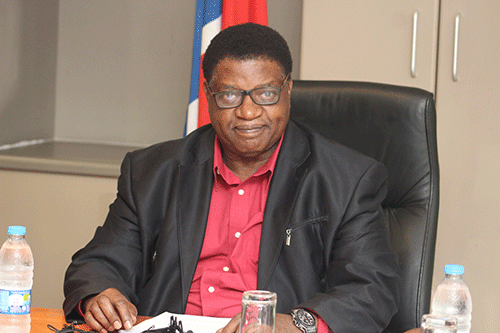While some parliamentarians have expressed support for the establishment of the genocide memorial museum, which was proposed by Josef Kauandenge earlier this year, they are urging caution in how the topic is discussed so as not to exacerbate divisions among Namibians.
National Unity Democratic Organisation (Nudo) lawmaker Kauandenge tabled a motion in parliament two months ago, calling for a memorial museum to honour people who died during the 1904-1908 genocide.
However, while he was introducing his motion, he made a declaration that, “I am a Herero before I am a Namibian.”
This was seen by other lawmakers as problematic.
Giving his contribution on Tuesday, Swapo’s Utoni Nujoma said although Kauandenge’s proposal is of great importance for Namibian history, he should rather have said “he is Namibian before he is Herero” as the genocide issue has not only affected Hereros but the entire country.
“Let us use the tragic history of colonialism that has divided us to unite us. Whatever we do, we must always be cognizant of the importance of unity,” he told his fellow MPs.
Nujoma stated that the nation is already “heavily divided” and people continue to promote tribalism.
“If we are to build a museum, let’s depict the history of Namibia as a whole. That is the only thing that can unite us,” said Nujoma.
Bernardus Swartbooi of the Landless People’s Movement (LPM) praised the motion, stating that the museum would serve to preserve the identity of those who were most impacted by the genocide.
“It is a common misconception that many people have assumed identities that were imposed by colonialism and do not accurately reflect who they truly are. However, it is important to understand that many descendants of genocide victims have developed new identities that must be acknowledged and explored. Failure to pass on historical knowledge to future generations can result in the loss of important cultural heritage and identity. The establishment of a museum will provide a central space for individuals to reconnect with and locate their true identities,” he said.
While he supports the notion of utilising Namibian history as a means of fostering national unity, he believes that unity is often used as a mere rhetorical tool by those who have played a role in dividing society.
He expressed scepticism about whether the concept of unity is truly meaningful to those in power, citing the stark discrepancies in budget allocation among different regions as evidence of real division.
“For instance, while Oniipa received N$10 million and Tsumeb N$20 million for capital projects in the budget allocation, Mariental was allocated N$1.4 million, Keetmanshoop only got a mere N$9 000,” said Swartbooi, pointing out that while discussions about unity take place in parliament, the budget figures reflect a very different reality.
Addressing the issue, the secretary general of Swapo, Sophia Shaningwa acknowledged that there is widespread support for the establishment of the genocide memorial museum.
However, she expressed concern that the ongoing discussions about genocide could reopen old wounds.
“The atrocities committed against the Namibian people are an undeniable part of the country’s history, but I don’t understand why we keep revisiting painful memories,” she said.
In her view, the key to healing is to take decisive action rather than continuing to dwell on the past.
However, her statement received resistance from other members who argued that repeated discussion of the issue is necessary for healing and understanding.
They emphasised that sweeping the genocide under the rug would be a disservice to the victims and future generations.
Reparations
The genocide in Namibia took place between 1904 and 1908 when German colonial forces committed mass atrocities against the Herero and Nama people, resulting in the deaths of an estimated 65 000 to 80 000 people.
The genocide was one of the first of the 20th century and is widely recognised as a precursor to the Holocaust.
Namibia and Germany negotiated for six years over reparations for the genocide that occurred in Namibia. In May 2021, they agreed to initial the joint declaration, which provides a framework for acknowledging the genocide, issuing an apology, and paying reparations.
Germany offered N$18 billion in project funding over 30 years to the descendants of affected communities, but some Herero and Nama groups felt they were not adequately consulted and that the amount offered is insufficient.
The National Assembly debated the joint declaration (JD) in December 2021 and referred various issues back to the Namibian government for renegotiation.
Technical committees from Namibia and Germany proposed an addendum to the JD, which was submitted to Germany in July 2022.
Vice President Nangolo Mbumba said in November 2022, that there has been no agreement reached or signed with Germany yet, and the signing of the JD will be done openly and publicly when all issues raised by the parliament have been addressed.
There are no new developments regarding the matter, according to Mateus Kaholongo, the deputy executive director in the Office of the Vice President.
However, sources close to the matter attribute the delay to infighting within the OvaHerero leadership.
“There is no progress because people are pulling each other and there are infightings. So, we don’t expect progress anytime soon because of the infightings among the OvaHerero,” he said. – ashikololo@nepc.com.na


